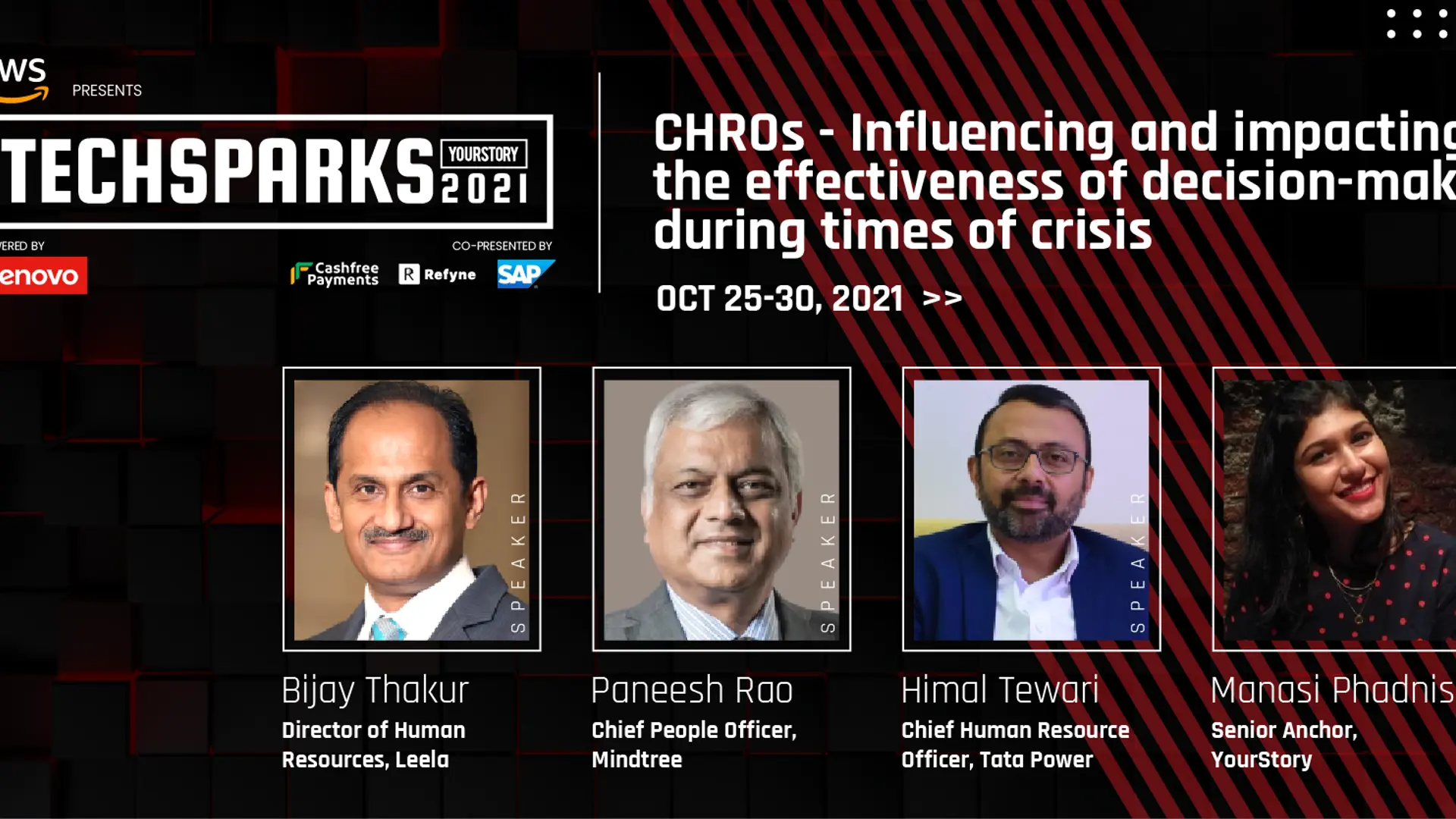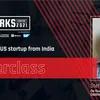CHROs weigh in on decision-making processes that kept work going amid COVID-19
At TechSparks 2021, HR experts from different sectors came together to reflect upon their strategies during COVID-19 and the lessons that workplaces learnt from the pandemic.
No industry, sector, business, or enterprise escaped the economic ripple effects of COVID-19. Offices and employees went online almost overnight, and human resource departments witnessed a paradigm shift in their processes and workflows.
As the dust continues to settle and companies adjust to a new normal, the role of HR has fundamentally changed.
To understand this better, YourStory brought together HR managers from different industries during the 12th edition of TechSparks, India’s most influential startup-tech conference.
The panel – comprising Bijay Thakur, Director of Human Resources, Leela; Paneesh Rao, Chief People Officer, Mindtree; and Himal Tewari, Chief Human Resource Officer, Tata Power – discussed the influences and impact of decision-making during times of crisis.
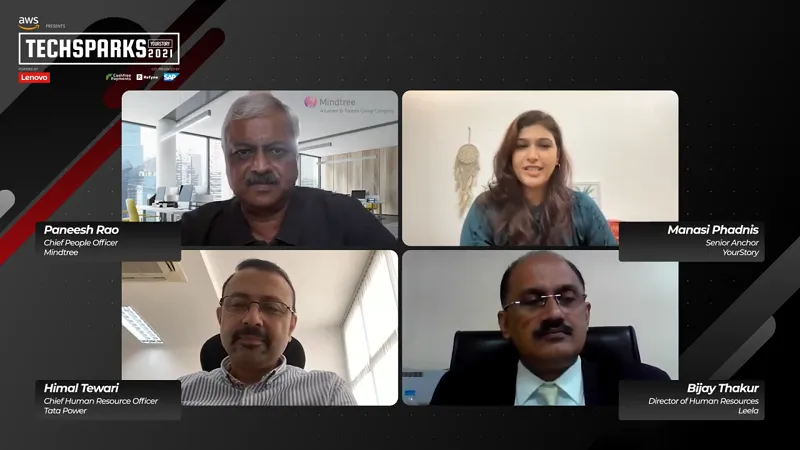
Leadership lessons
IT service provider Mindtree was already digitised – this made it relatively easy to shift to the work-from-home option.
“We quickly learned the situation and adapted to the online workflow. We did not change any policy. Initially people had issues from working from home but they adjusted quickly,” Paneesh said.
On the other hand, the century-old Tata Power did not have the work-from-home option. The pandemic threw employers and employees into chaos and uncertainty.
Himal said their approach was to connect with the employees at a different level and try to communicate with them in “the human language”.
“We brought in young voices to lead this and made communication lighter/ light-hearted with humour. We [had] constant communication with employees,” he said.
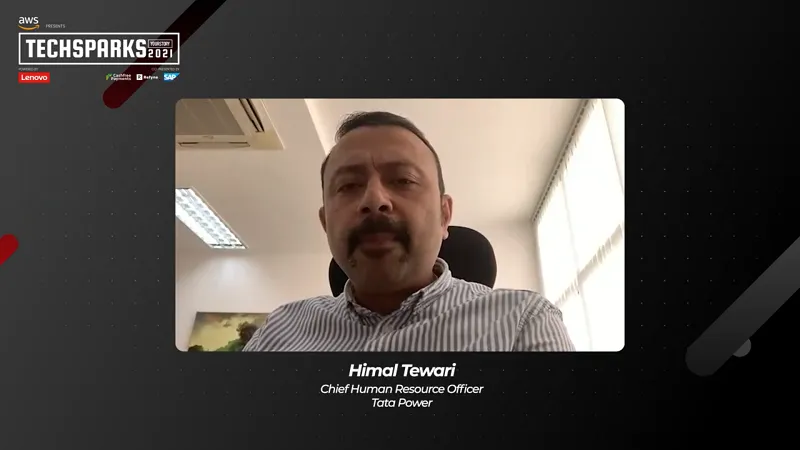
Staying safe
For a company like Tata Power, protection was needed at multiple levels - office infrastructure, plant areas, and during transit where the risk element is the maximum. The HR team conducted vaccination campaigns for its employees and their families to ensure this.
Bijay said his management invested largely in technology. “It was a learning process for everyone. However, we ensured that everyone was secure and their salary was paid.”
The Leela Group made sure it retained all employees through a rotation cycle. The task force working in the hotels, especially in Chennai, in the initial stage of pandemic was vaccinated in March itself.
Bijay said their My Leela app ensured that all employees were connected. He added that business was picking up now and was almost “70-80 percent of pre-COVID level”.
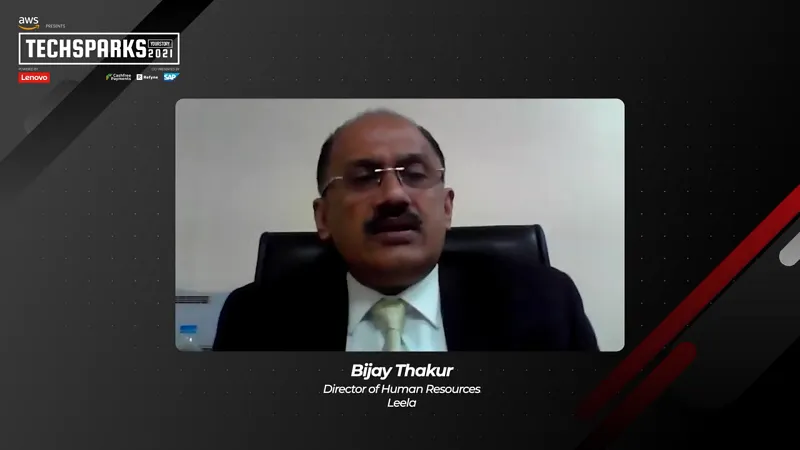
Engaging employees
Mindtree’s Paneesh said as employees were working completely online, there were asked to switch on the camera during meetings to ensure face-to face interactions. The team made sure that employees were not disturbed after work hours and during weekends.
The work-from-home scenario also provided an opportunity for employees to reskill themselves from different learning platforms.
The management ran sessions online and organised days where speakers, experts, and others were invited. Employees’ families were also involved in these programmes.
The other HRs echoed Paneesh’s words, in terms of involving families “as much as possible”. Small gestures like sending food for free or at discounted rates cheered up employees and made them feel connected.
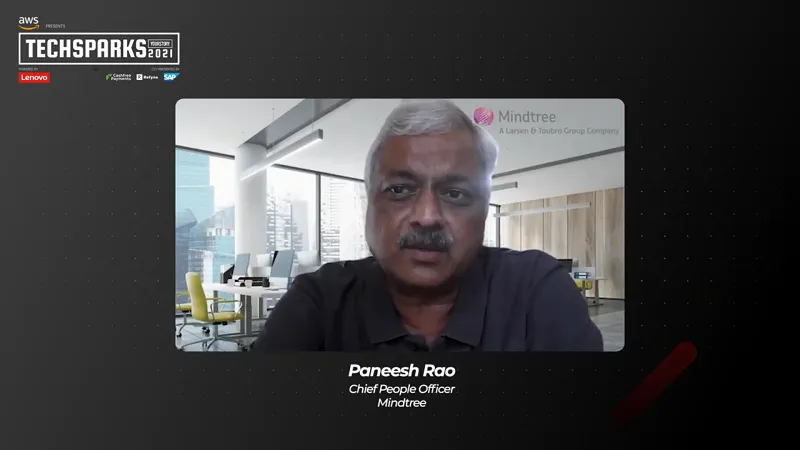
Focus on health
HR teams operated in crisis mode for almost the whole of 2020 and the first half of 2021, figuring out how employees could work from home and doing their best to provide mental and physical health support.
Paneesh admitted that while people are now returning to the workplace, no employee was being forced. “Patience is important. We are slowly making it a habit for people to come to office if they are doubly vaccinated and find it safe,” he said.
Bijay said that the months of April and May 2020 were the worst for the hospitality sector. The group ensured it gave extra leave to people who were unwell and gave an option so their families could stay in their hotels.
Himal added that the pandemic sharply shifted the focus to health and wellness.
Paneesh had the last word. "The future belongs to those companies who take care of the health and wellness of their employees.”
Edited by Teja Lele


